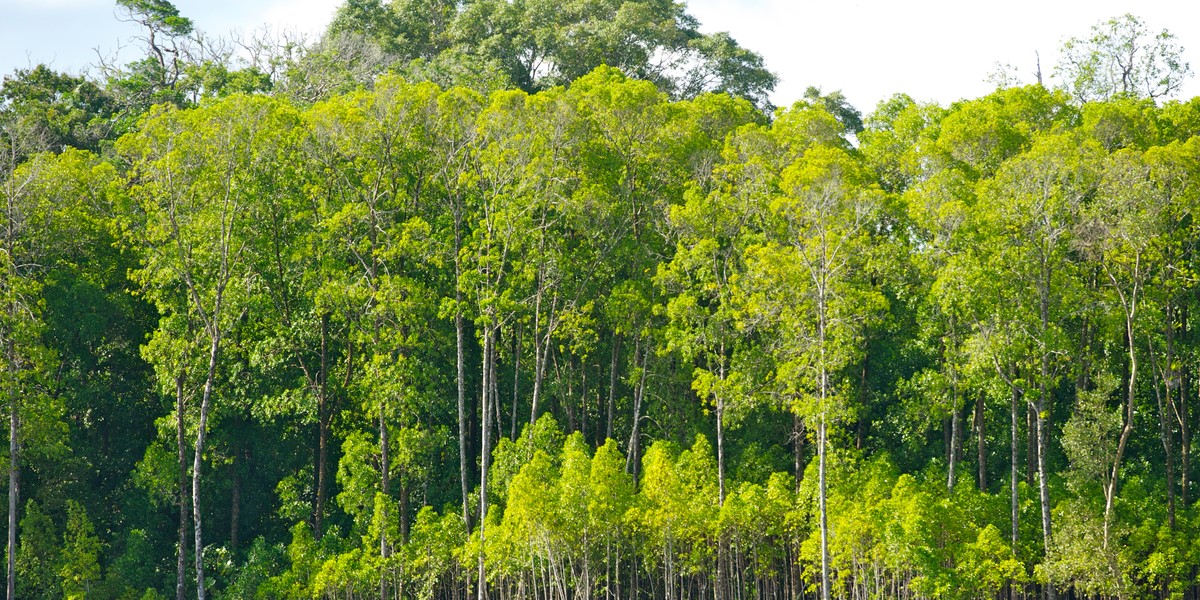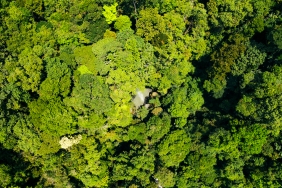GETTING TO KNOW THE EXOTIC ANIMALS OF UJUNG KULON IN PANDA LAND
By: Dina M (Volunteer Bumi Panda)
As WWF-Indonesia's educational house, Bumi Panda has become one of the destinations for students to learn more about WWF-Indonesia's conservation efforts. Biology Student Association of ITB is one of the examples. They visited Bumi Panda on Saturday (10/12) to learn about the conservation efforts of Javan rhinos.
Furthermore, the group was invited to watch a documentary video entitled "Ekpedisi Cula Rhino Jawa" which tells the story of a student who tried to document the Javan rhino in Ujung Kulon National Park. The participants seemed enthusiastic when watching the documentary video because it was wrapped with comedy footage so that it was not bored. The video also depicts the conservation efforts made by WWF-Indonesia.
Information about Javan rhino conservation efforts was also shared through a presentation. "Since 1962, WWF has been present in Indonesia to conserve the Javan rhino. Its existence is considered very important for the existence and balance of this nature," said Sani. The presentation also illustrated the number of remaining individuals of the Javan rhino. Although there is no poaching (in Ujung Kulon), the threat of extinction will still occur due to nature itself. (As we know), the location of the Javan rhino is close to the active Mount Krakatau. It is certain that if it erupts, the entire population will be extinct. In addition, the threat of tsunamis to Javan rhinos is a special concern of WWF-Indonesia so that there are currently other efforts to increase the population by creating a "second habitat" where Javan rhinos are placed in a location that is relatively safer from geographical threats.< br />
"Sis, what happens if the Javan rhino becomes extinct?" asked Cahyadi, a student from ITB. "Of course, the balance of nature will be disturbed and it will affect the lives of the people in Ujung Kulon itself because the Javan rhino is the main mascot there. Regional income will decrease because fewer tourists will visit there," explained Sani. The students were impressed with their visit to Panda Earth. "I understand more about the existence of the Javan rhino. We as Biology students should contribute significantly to the survival of Javan rhinos in Ujung Kulon," said Mutia, a Biology student from ITB.





